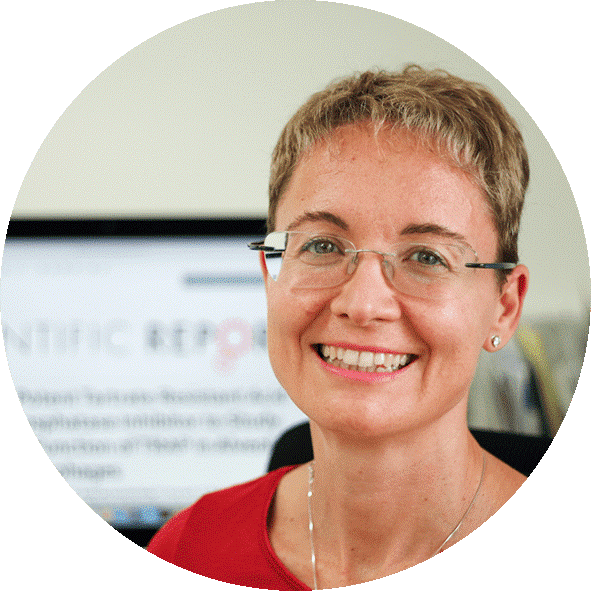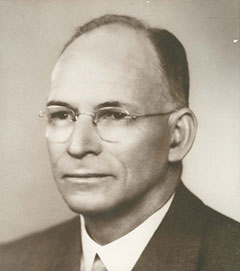The beauty of gold: from small molecules to supramolecular complexes for biomedical applications and activity in aqueous environment
Speaker
Professor Angela Casini
Chair of Medicinal and Bioinorganic Chemistry
Technical University of Munich (TUM)
Event Details
4-5pm: Lecture by Professor Angela Casini
5-6pm: Refreshments and networking
Abstract
From wedding rings to stained glass windows, through Olympic medals, gold has been highly prized for millennia. Nowadays, organometallic gold compounds occupy an important place in bioinorganic chemistry. In fact, several studies have proven that they can be used to develop compounds with possible applications as therapeutic agents, as well as chemical probes to study the molecular mechanisms of diseases. This lecture summarizes the results obtained for different families of bioactive organometallic gold compounds including those featuring N-heterocyclic carbenes, cyclometalated and alkynyl ligands, and the principles of their design for biomedical applications.
One of the challenges of modern inorganic chemistry is translating the potential of metal catalysts to living systems to achieve controlled non-natural transformations. To this aim transition metal catalysts offer an opportunity of modulating bioprocesses through reactions that are complementary to enzymes. In this context, gold complexes, both coordination and organometallic, have emerged as promising tools for bio-orthogonal transformations, endowed with excellent reactivity and selectivity, compatibility within aqueous reaction medium, fast kinetics of ligand exchange reactions and mild reaction conditions. Therefore, this lecture will summarize recent findings on Au(III)-catalysed reductive elimination in aqueous media, providing the proof-of-concept for the use of organogold compounds for the efficient modification of proteins through C-atom transfer.
Finally, the potential of novel metal-based supramolecular coordination complexes, for different applications in drug discovery will also be highlighted, including the design of self-assembled metallacages as drug delivery systems. Overall, the final ambitious goal of this research is to define new trends in the periodic table aimed at rationalizing the behaviour of metal-based compounds in complex living systems
Meet the speaker
 Angela Casini is Liesel Beckmann Distinguished Professor and Chair of Medicinal and Bioinorganic Chemistry at the Technical University of Munich (TUM, Germany) since September 2019. She completed her PhD in Chemistry at the University of Florence (Italy) in 2004, and, afterwards, moved to EPFL (Switzerland) as senior scientist funded by the Swiss National Science Foundation. Between 2011-2015 she has been assistant professor at the University of Groningen (The Netherlands), holding a Rosalind Franklin Fellowship. Between 2015-2019, she was also professor at Cardiff University (UK), before taking up her current position at TUM.
Angela Casini is Liesel Beckmann Distinguished Professor and Chair of Medicinal and Bioinorganic Chemistry at the Technical University of Munich (TUM, Germany) since September 2019. She completed her PhD in Chemistry at the University of Florence (Italy) in 2004, and, afterwards, moved to EPFL (Switzerland) as senior scientist funded by the Swiss National Science Foundation. Between 2011-2015 she has been assistant professor at the University of Groningen (The Netherlands), holding a Rosalind Franklin Fellowship. Between 2015-2019, she was also professor at Cardiff University (UK), before taking up her current position at TUM.
She was awarded the 2012 European Medal for Biological Inorganic Chemistry and, in 2014, she has been listed by Thomson Reuters as one of the "World’s most influential scientific minds" in the field of Pharmacology. Between 2016-2019 she was also Hans Fischer Senior Fellow of the prestigious Institute of Advanced Study of the Technical University of Munich. In 2018, she has been awarded the Burghausen Chemistry Diamond award, an acknowledgement of chemical and industrial innovation. She is the recipient of the 2019 ACS Inorganic Lectureship Award. Her research focuses on the study of the role of metal ions in biological systems and of the mechanisms of action of gold organometallic anticancer agents. Furthermore, novel applications for metal-based compounds and supramolecular coordination complexes are explored in various domains of chemical biology, drug delivery and medicine. In these fields, she is author of more than 200 publications.
About T. G. H. Jones Memorial Lecture

This biennial UQ public lecture is a memorial to the late Thomas Gilbert Henry Jones, who joined UQ as an assistant lecturer and demonstrator in 1915. Following service in WWI as a munitions and explosives producer, he returned to UQ as a lecturer in inorganic chemistry, being promoted to professor and Head of Department in 1940. During his 50 years of service to UQ, Professor Jones was a member of the Senate (from 1944 to 1968), Dean of the Faculty of Science (from 1942 to 1949 and again from 1960 to 1961) and President of the Professorial Board (from 1951 to 1956).
Professor Jones initiated a program of research into the chemistry of natural (plant) products. He held officer positions in the Royal Society of Queensland and the Royal Australian Chemical Institute. He led a public meeting in City Hall in 1957 to protest against State Government legislation that threatened the University’s autonomy in making appointments. He was awarded a CBE in 1960 and received honorary doctorates from UQ and the University of Newcastle.
The lecture was not offered in 2020 and 2021 due to the COVID-19 pandemic. From 2022 it is offered every second year, alternating with the School's other chemistry public lecture, the Bertram Dillon Steele Lecture.
Read more about Professor Jones on our history page.
Venue
The University of Queensland
